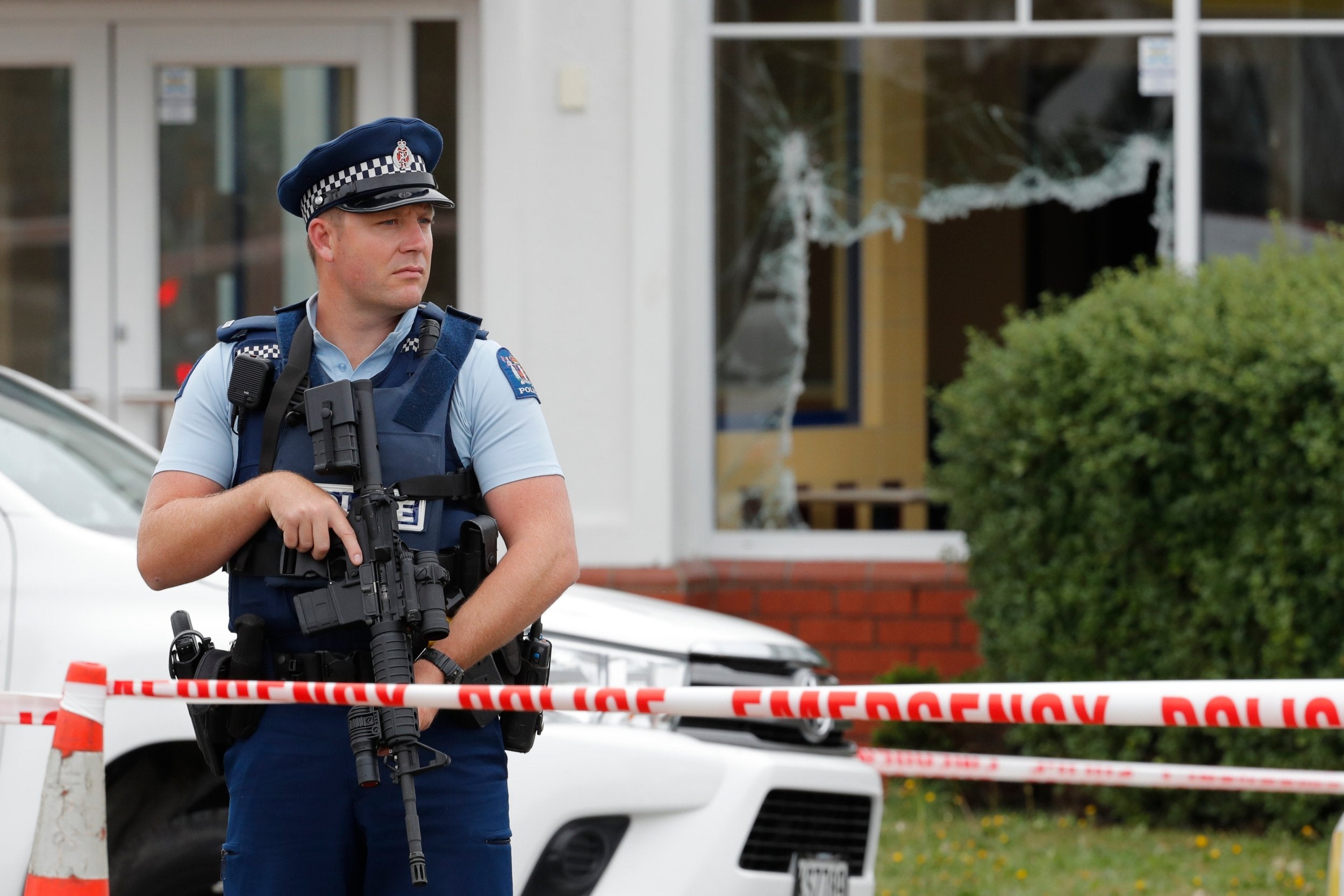Police failing to catch suspects for record number of racial and religious attacks
Some forces are failing to identify suspects in almost half of recorded offences, figures show
Police are failing to identify suspects for almost half of racially and religiously aggravated attacks in parts of the UK – as the offences reach a record high.
Across the country, the suspects are not identified in three in 10 cases.
Charities have now warned that public confidence in the criminal justice system would be undermined if offenders are not caught.
The hate crime figures come amid calls to combat intolerance after the New Zealand shooting and other attacks on mosques and synagogues.
Police admitted there was “a lot of work to do” after the government vowed to improve the response to all forms of hate crime.
Racially and religiously aggravated offences recorded by police in England and Wales reached a record high of more than 57,600 in the 12 months to September, after jumping by 7 per cent in a year.
They include physical assaults, harassment, vandalism and causing “public fear, alarm or distress”.
Fiyaz Mughal, founder of Islamophobia monitor Tell Mama, told The Independent some hate crime victims were living in fear because of the knowledge that attackers were still at large.
“We totally understand there can be evidential difficulties, and we come across cases where people break a window or spray graffiti and where there’s no CCTV, but there is responsibility for police forces,” he added.
“It has significant impact on public confidence in the system, which means that people will not report in the future.
“If police are not able to get a grasp on it, individuals will suffer a long-term impact … we have clients whose levels of anxiety and depression have increased immensely.”
Analysis of Home Office figures by the Press Association showed that the result of investigations varies dramatically across the country.
Greater Manchester Police closed 46 per cent of hate crime probes with no suspect in the frame, and the figure was 44 per cent for West Midlands Police.
Other forces failed to identify culprits in around a third of investigations, including British Transport Police, Northumbria and Sussex.
North Yorkshire was the lowest, at 4 per cent, and across all forces, 28 per cent of all racially and religiously aggravated offences were assigned the outcome “investigation complete – no suspect identified”.

This marker is used when a reported crime has been investigated “as far as reasonably possible” and the case is closed pending further investigative opportunities.
The Equality and Human Rights Commission called the figures “disappointing” and said it was vital that any potential hate crimes were reported to police to ensure they were properly investigated and prosecuted.
“Attacking or harassing people is unacceptable in today’s society and it is shameful when carried out because of their identity,” said chief executive Rebecca Hilsenrath.
“Police forces must collect accurate and comprehensive data so they can develop effective solutions to end hate crime in our society.”
Police leaders said the figures reflect the fact that members of the public have the confidence to report more hate crimes, but that some incidents lack vital evidence or witnesses needed for a suspect to be identified.
Following budget cuts causing the loss of more than 20,000 officers since 2010, some forces have started “prioritising” how they respond to crime reports.
The National Police Chiefs’ Council lead for hate crime, Assistant Chief Constable Mark Hamilton, said: “Unfortunately, with many cases, there are often no witnesses to these crimes and scarce evidence – this may lead to police being unable to identify a suspect.
“The police service has no tolerance for this type of abuse but we need to be made aware that crimes are taking place so that we can investigate – or better still, prevent them from happening.”

Greater Manchester Police acknowledged it had “a lot of work to do” to ensure hate crimes were dealt with “in the best ways that we can”, while West Midlands Police said it was determined to follow “all active lines of inquiry to trace suspects”.
Mr Mughal criticised a lack of “substantive investment” into online investigations.
“That is a gaping hole and significant problem,” he added, amid renewed calls to tackle extremist content of the kind seen by the New Zealand terror suspect.
“The lack of investment, the lack of ability to find the perpetrator and the ongoing dispute with social media firms over legal orders mean the victim is losing out.”
Separate Home Office figures shows that religiously motivated hate crime rocketed by 40 per cent in a year, and more than half is now directed at Muslims.
Jewish charity the Community Security Trust has reported record antisemitic incidents.
Sajid Javid has appealed for Britain to “stand together” after a series of suspected hate incidents across the country in the wake of the New Zealand shooting.
“The horrific events in New Zealand are a direct attack on the values of tolerance and freedom of worship that unite us all,” he said on Tuesday.
“Nobody should ever fear persecution of their faith and it’s vital we stand together to reject those who seek to spread hatred and divide us.”

A Home Office spokesperson said it had refreshed a national hate crime action plan, “improving the response to all forms of hate crime including anti-Muslim hatred, providing investment in communities to tackle the root causes of prejudice and racism and ensuring a robust criminal justice response”.
Police leaders have been calling for more funding in an upcoming government spending review to tackle rising violent crime and other issues.
In the year to September, 46 per cent of all crime investigations were closed without a suspect being identified and only 8 per cent resulted in a prosecution.
Bookmark popover
Removed from bookmarks